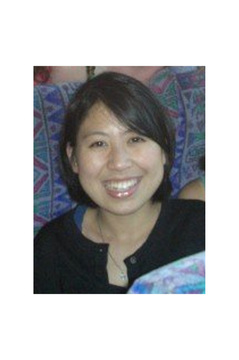|
5/24/2013 0 Comments Scientista Spotlight!Dr. Mai Anh Huynh, MD/PhD Dr. Mai Anh Huynh, MD/PhD Dr. Mai Anh Huynh, MD/PhD By Emily Groopman, '14 Though born and raised in Evansville, Indiana, Dr. Mai Anh Huynh is no stranger to Cambridge – whether the American or English version. As an undergraduate at Harvard, she conducted summer research in structural biology at the MRC Laboratory of Molecular Biology (Cambridge, UK). After completing an A.B. in Biochemical Sciences, she entered Harvard Medical School’s Health Sciences and Technology Program, and graduated as physician-scientist in 2012, with a PhD in Neurobiology. Currently in her residency in radiation oncology at Massachusetts General Hospital, Dr. Huynh also serves as a Resident Pre-Medical Tutor at Harvard’s Kirkland House. Below, she discusses her choice of an MD/PhD, her experiences while pursuing her dual degree, and her goals for the future. 1. What drew you to pursue an MD/PhD specifically (vs. solely an MD or a PhD)? When did you decide an MD/PhD was right for you? I have been interested in medicine for as long as I can remember. I always loved science and engaging with other people and to me medicine seemed to be the career I would find both intellectually and personally satisfying. I had not considered the MD/PhD as an option until college. I very much enjoyed my research experiences as an undergrad, in particular my experience in Venki Ramakrishnan's lab in the UK. The opportunity gave me a flavor of what it would mean to pursue research as a career and also showed me the impact one could make on human health through scientific discovery. I felt the combined degree would train me to be both a better physician and a better scientist and hopefully provide a skill set that would allow me to make connections between both worlds. 2. What has been the most challenging aspect of the MD/PhD process? The most rewarding? The transitions are the toughest part. The mentality and culture of the lab and in the wards are quite different. Inevitably, you will feel rusty either clinically or scientifically as you become more immersed in the different training phases of the program. Transitioning from med school to the uncertainty of the lab as you settle into the PhD is often challenging as the metrics for measuring productivity or personal success can be few and far between. It is hard to watch your classmates move on and graduate without feeling a little left behind. Conversely, the freedom and sense of comfort you develop in lab is hard to leave when returning to the wards, where much of the first two years of med school are a distant memory. Each phase has its own rewards. For me, the human interactions you get through medicine are very motivating and there is a more direct sense of feedback regarding the impact you make on other people's lives. In the lab, the reward is in the process of discovery and the unique satisfaction you might feel in figuring out a process or phenomena that no one else has seen before. Ideally, that discovery will have a larger clinical impact, but on a day-to-day basis, it's easier to measure success in smaller increments and through the excitement of gathering new data. 3. Discuss your choice of research field: what motivated your choice of the field specifically? How did you find your lab? My research was in neurobiology looking at the transcriptional regulation axon growth and neuronal development with Azad Bonni. Neurobiology is an attractive combination of molecular biology with a frontier of medicine that we still know very little about. The topic was interesting enough to keep me motivated throughout my PhD. I was fortunate to find my mentor through talking with other students who had rotated in his lab. I picked the lab because I felt it would be a good training experience for me and was lucky enough to have a great training experience with a very supportive mentor. 4. What do you like most research? About medicine? How do you see yourself balancing the two as you advance in your career as a physician-scientist? In research, I like the autonomy and sense of discovery. In medicine, I like making connections with patients and feeling that I am doing my best to take the best care of them as possible. I hope one day to combine the two by pursuing research and a clinical practice that will complement each other. I expect this will be easier for me to envision once I get through residency training and much will also depend on what opportunities arise. My goal is to become an academic radiation oncologist, and I do hope to have time to spend both in the clinic and in the lab in the future.
0 Comments
Your comment will be posted after it is approved.
Leave a Reply. |
What's NewUpcoming EventsFinal ScientisTalk of the Semester!
When: 4/25, 6-70pm Where: Lowell Small Dining Hall Subscribe to Our Mailing ListArchives
November 2016
Categories |
The Scientista Foundation, Inc. All Rights Reserved © 2011-2021 | Based in NY | contact@scientistafoundation.org
The Network for Pre-Professional Women in Science and Engineering
The Scientista Foundation is a registered 501(c)(3) -- Donate!
The Network for Pre-Professional Women in Science and Engineering
The Scientista Foundation is a registered 501(c)(3) -- Donate!


 RSS Feed
RSS Feed